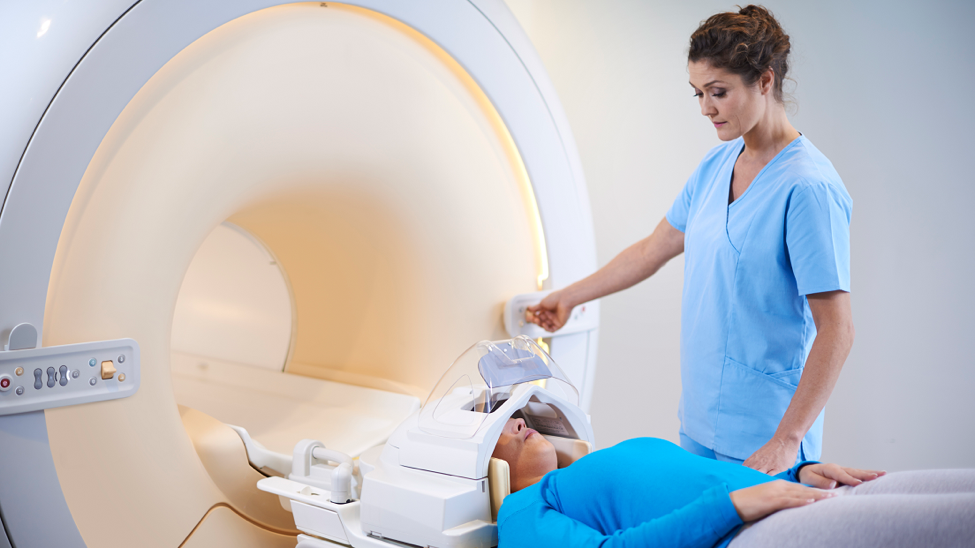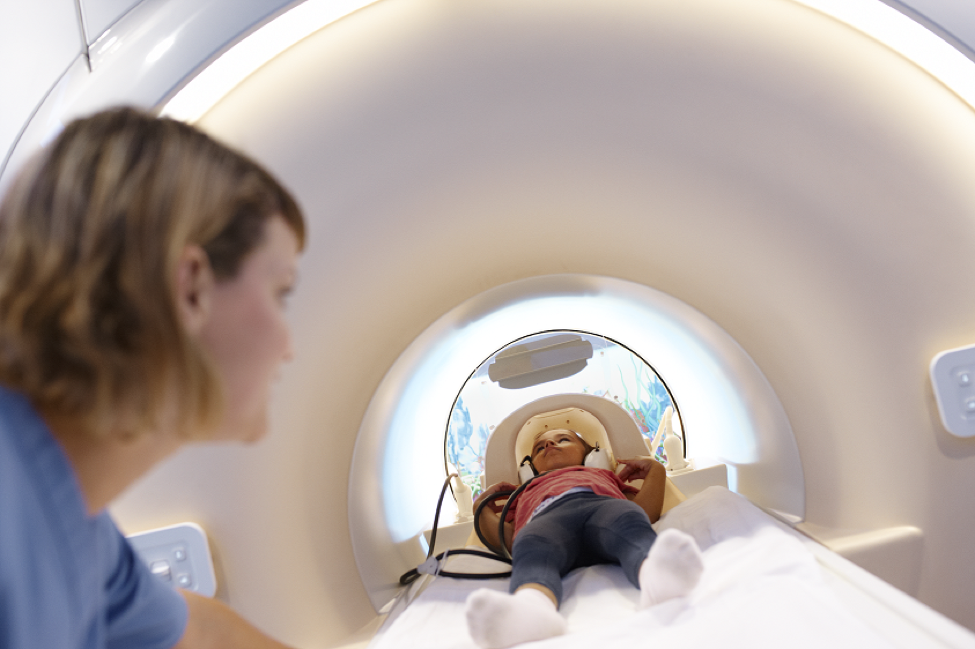Magnetic Resonance Imaging (MRI) 3.0 Tesla

Magnetic resonance imaging (MRI) is a medical imaging technique used in radiology to form detailed pictures of the inside of your body. It is a non-invasive tool that uses strong magnetic fields, electric field gradients, and radio waves to generate images of the organs in the body. MRI does not involve X-rays and the use of ionizing radiation. The strength of the magnet of the system determines the quality of the imaging possible with the MRI system.
Bangkok Heart Hospital offers the best MRI equipment in the region, with state of the art MRI 3.0 Tesla. It provides excellent image quality and superb diagnostic capabilities. With this technological advancement, the doctor is able to see the abnormality of the cardiovascular system precisely. This increases the accuracy of the diagnosis of a wide range of cardiovascular conditions such as myocardial infarction, myocarditis, cardiac amyloidosis, valvular heart disease, cardiac hemochromatosis, coronary artery disease, and congenital heart disease. The MRI 3.0 Tesla can be used to evaluate the risk of ischemic heart disease by MRI stress test with pharmacologic induction.

In addition, MRI can be used to help diagnose or monitor treatment for a variety of conditions in children. As it does not use ionizing radiation, like X-rays or computed tomography (CT scans), the imaging technique is very safe for children. Moreover, the contrast material used in MRI exams is less likely to produce an allergic reaction than the iodine-based contrast materials used for conventional x-rays and CT scanning.
MRI is contraindicated in pregnant women, patients with implanted electronic devices (pacemaker), implantable cardioverter defibrillator (ICD), patients with implanted metal parts (aneurysm clip, cochlear implants, joint replacement), patients with metal foreign body (metallic splinter in the eye, bullets) and patients who have claustrophobia (fear of being enclosed in a small space). Patients with renal insufficiency (creatinine > 1.5 mg/dL or glomerular filtration rates of <30 ml/min) should be assessed by a nephrologist before having MRI scan with intravenous galodinium based contrast.
Schedule an appointment
- Contact cardiac imaging department on B floor at Bangkok Heart Hospital or Call 0-2755-1292, 0-2755-1294
Preparing for MRI
- There are no dietary restrictions before a MRI exam. In cases that need sedation, the doctor might tell the patient to avoid food and drinks before the MRI exam.
- Do not wear makeup (eye shadow, mascara, etc.) as it may contain some types of metal.
- Arrange for a friend or family member to accompany you. Patients who need to be sedated, an inform consent has to be signed by the patient or a legal representative.
Before and during the MRI scan
- You will typically be asked to change into a gown.
- You will be asked to remove things that might affect the magnetic imaging such as jewelry, hair clip, dentures, eyeglasses, and ATM/credit cards.
- Patients who have implanted metal parts or electronic devices should inform the staff before the scan.
- As the scan takes some time, you will be advised to urinate before.
- The MRI scanner will make loud tapping noises at certain times during the procedure. This is the electric current in the scanner coils being turned on and off. You will be given earplugs or headphones to wear.
- To avoid the images being blurred, it is very important to keep the part of your body being scanned still throughout the scanning process.
- Let the staff know immediately, if you experience any symptoms such as difficulty breathing, discomfort such as chest discomfort.


